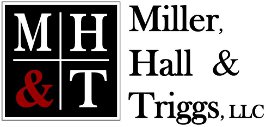Recent case illustrates need for caution
By: Patrick A. Murphey
The Illinois Public Labor Relations Act provides it is an unfair labor practice to interfere with, restrain or coerce public employees in exercises of their rights under that Act. 5 ILCS 315/10(a)(1).
Recently, in New Lenox Fire Protection District, 28 Public Employee Reports Illinois 35 (7/20/11), the Employer was enjoined to cease and desist coercing its employees based upon a local newspaper report on a dispute between the District and the Union representing the District’s part-time firefighters. The District’s Board of Trustees contracted with an outside provider to staff its fire service, eliminating its part time firefighter program shortly after the Union was certified. Some of the part time firefighters also participated as “paid on call volunteer” firefighters, who continued to be used to supplement the contract fire service. To protest the reorganization eliminating the part time service, the Union organized a demonstration at a Board meeting, showing up with a giant inflatable rat, and picket signs protesting the elimination of the part time fire service by contracting.
A local newspaper reporter covered the demonstration, and wrote an article which attributed several statements to the President of the Board of Trustees, including a contested statement which the Union asserted as a threat, to wit: “that the FPD would not start using paid on call firefighters again until the issue is resolved.” Despite evidence the reporter did not understand the distinction between part time employees and paid on call volunteers, the ILRB held the statements resulted in a threat because the Board President allegedly failed to clarify her question or correct her mistake. Ignoring the law, which provides trustees have no authority to act on behalf of the District in their individual capacity, the ILRB looked solely at the “effect” of the published statements on the paid on call firefighters to find it was an unlawful threat, to be attributed to the public employer, subject to a broadly worded “cease and desist” order.
The case illustrates several cautionary points members of public bodies need to consider in any statements to media representatives concerning any labor dispute. First, if you agree to discuss an ongoing labor problem with a news representative, if possible, do so only on background, not for attribution, and make clear that you are not authorized to speak on behalf of the public body, and comment only as a private citizen. Second, where it is necessary to communicate the Employer’s position through the media to insure another side is presented to the public, respond only from a prepared statement, and do not go “off script”. Such prepared statement needs to be vetted to insure nothing stated therein constitutes any unlawful threat of adverse action, or promise of benefit, to employees involved in the labor dispute. The middle of a labor dispute is not the time to shoot from the hip or to make off-the-cuff remarks.
